See what two GAs thought about WRD 511.
Continue reading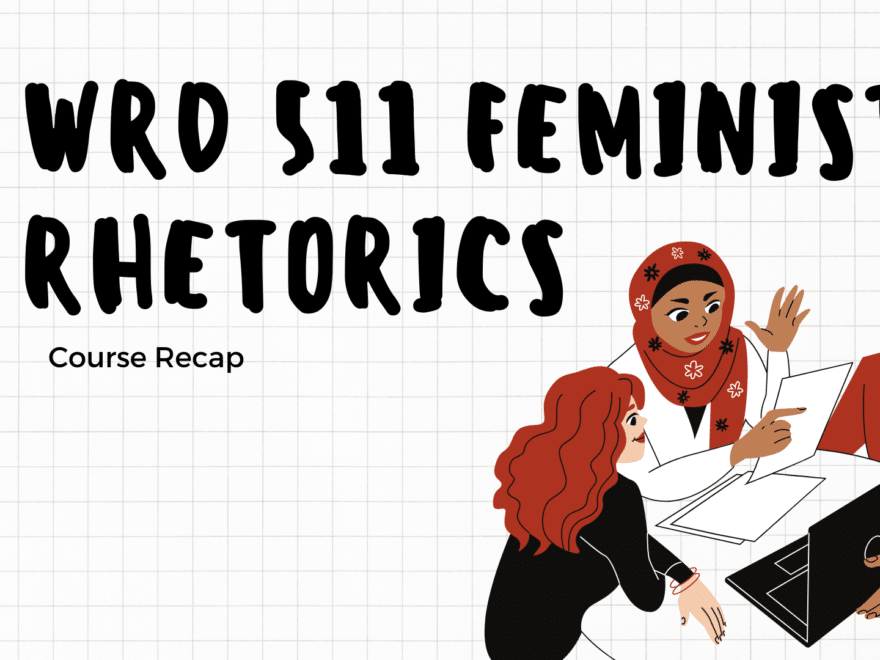
News from DePaul University's Department of Writing, Rhetoric, and Discourse

See what two GAs thought about WRD 511.
Continue reading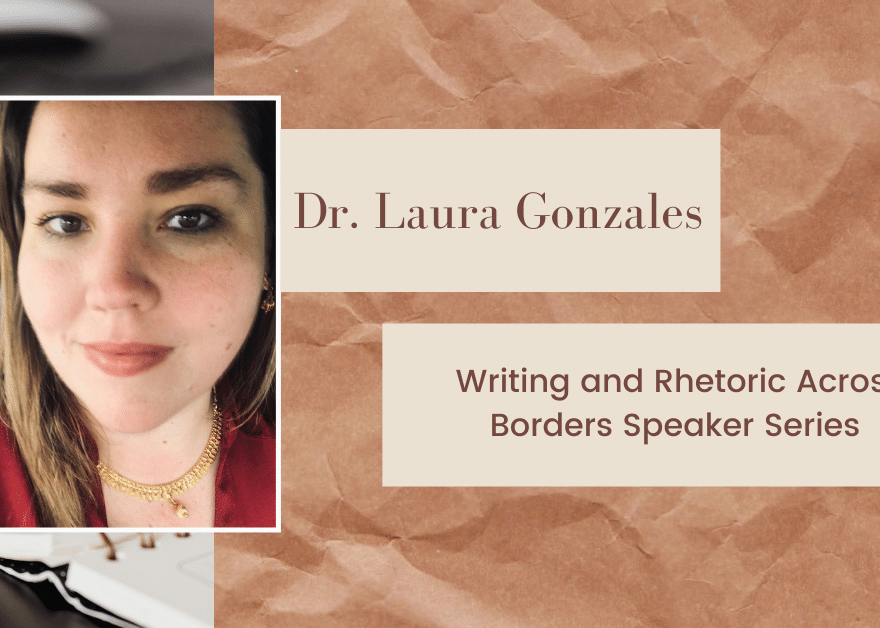
On Tuesday, April 12, Dr. Laura Gonzales gave a fascinating presentation as part of the WRD Writing and Rhetoric Across Borders Speaker Series. Dr. Gonzales’ talk entitled “Translating Writing Across Communities, Languages, Contexts, and Disciplines” primarily focused on the ways in which we can all make a more conscious effort to bring equity into our work–both inside and outside the classroom. Much of what Dr. Gonzales had to share stemmed from the work she did with multilingual communicators who do translational work for her 2016 book Sites of Translation. A term she referred to frequently throughout her presentation was “translation
Continue reading
One of the best parts about pursuing a degree is finding scholarly tracks you’re passionate about. Sometimes that passion swells beyond the scope of a class or project and you want to take your research to the next level. Whether you’re an undergraduate or graduate student, oftentimes there are ways to pursue that research in a meaningful, productive way. Whether you take your project to a fellowship or find funding to do more research on your own, there is a myriad of opportunities to take advantage of while you’re still in school. This article doesn’t talk about every single option
Continue reading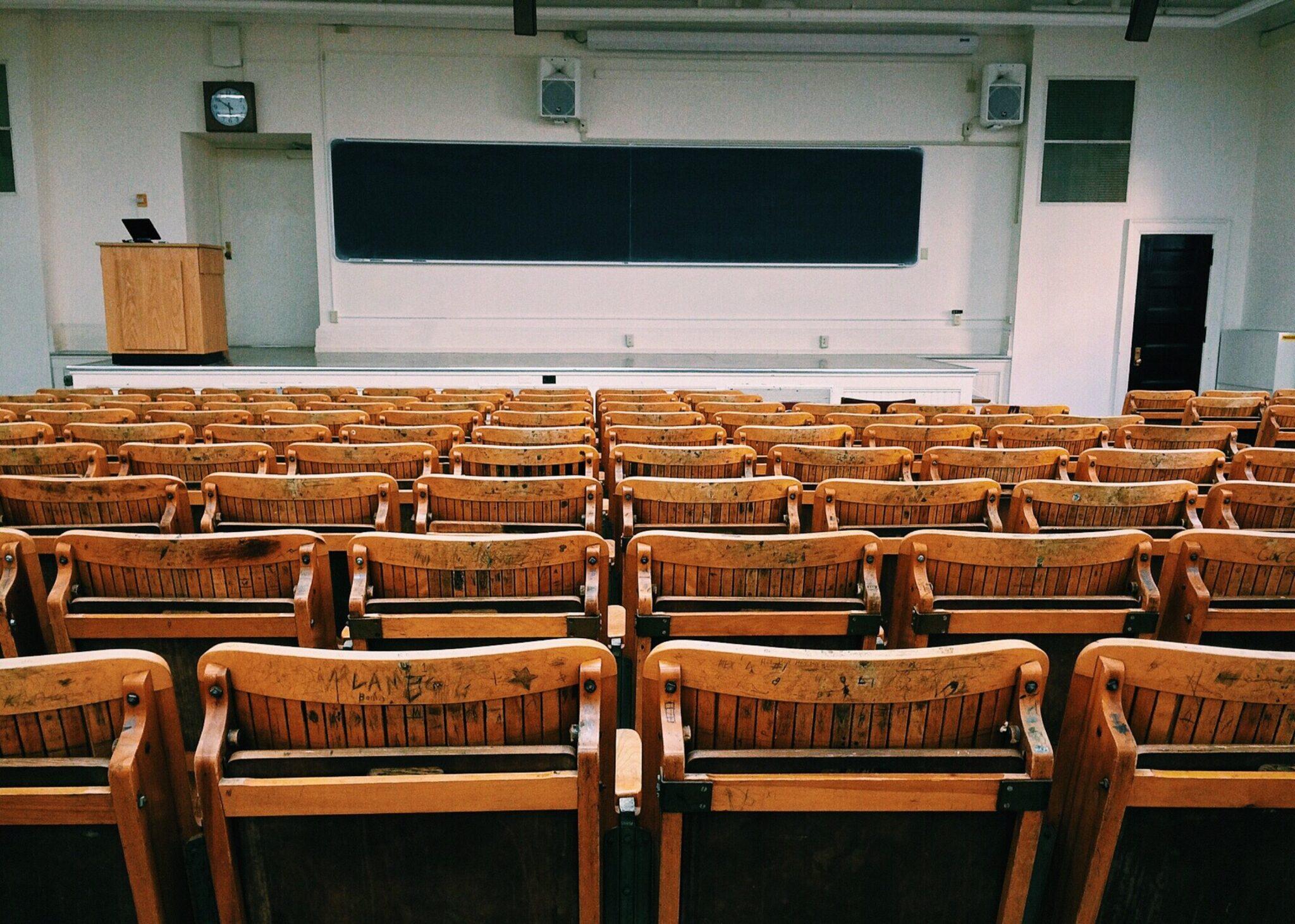
When finishing an undergraduate program, it can sometimes feel like that is the only time one can go into graduate school. But, for many students, heading right back into school after 12-16 straight years of schooling isn’t the right option. In fact, as of 2021, the average American graduate student was 33-years-old which is a statistic that has remained pretty stable for the last several decades. Beyond that average age, however, are folks who decide to go to graduate school later in their lives and careers. Choosing to go back to school is a big commitment, even in a two-year
Continue reading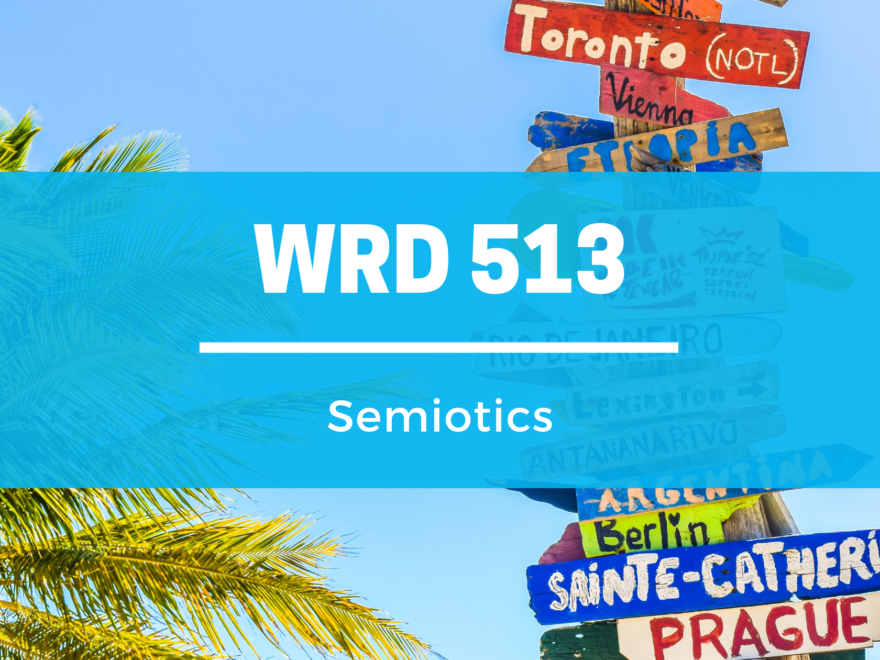
Even if you aren’t sure what “semiotics” is, you encounter it on a daily basis. Put plainly, semiotics is the study of signs or symbols and how we interpret them. Take, for example, how you use emojis in your texts to convey a certain meaning. That is a use of semiotics because you are relying on that emoji to give context to whoever you’re talking to. If studying that sounds interesting to you, you should consider taking Professor Pete Vandenberg’s WRD 513: Semiotics this spring. Not only will you learn about using semiotics in a disciplinary sense, but you’ll also
Continue reading
Among the classes in DePaul’s WRD program, there are several you would probably find clones of in other similar programs around the country. But in pursuit of a professional writing career through the program a class like Professor Justin Staley’s WRD 284: Sports Writing in America: Myths, Memories, Heroes and Villains, you’re bound to learn a variety of skills that will help in a variety of writing work capacities. Just because the class is about sports writing doesn’t mean you necessarily have to take that professional route after graduation. It’s also possible you’ll fall in love with the topic and
Continue reading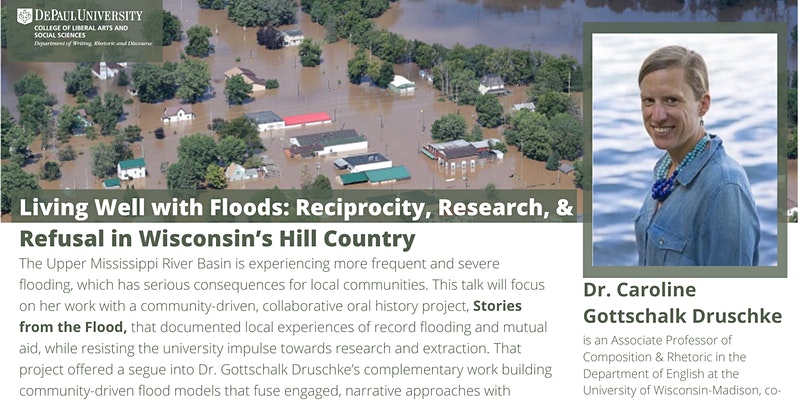
As part of the Writing & Rhetoric Across Borders series, Dr. Caroline Gottschalk Druschke from the University of Wisconsin-Madison joined us on February 17 to discuss her work around community and disaster discourse. Her presentation titled “Living Well with Floods: Reciprocity, Research, and Refusal in Wisconsin’s Hill Country” provided a fascinating look into how storytelling can create positive frameworks for real change within a community. Although Dr. Gottschalk Druschke admitted that the work could be difficult at times as the community members were wary of university types after being exploited in the past. Even so, the larger response to increasing
Continue reading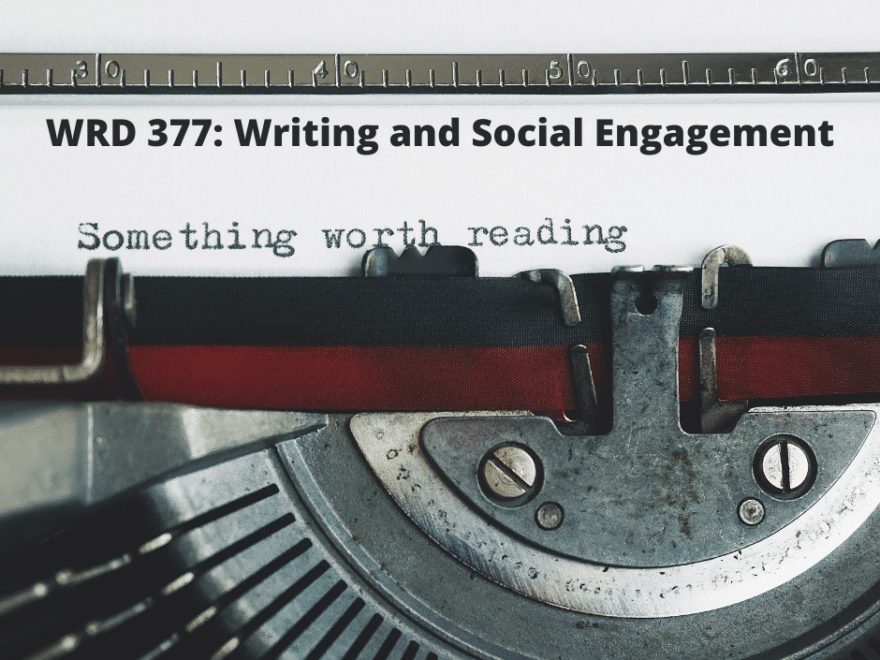
For students in the Writing, Rhetoric, and Discourse department it comes as no surprise that the act of writing carries social power. That power can be used for good or for ill. For Dr. Maria Prikhodko that strength in writing as a social activity is what drives her course WRD 377: Writing and Social Engagement which is being offered in the Spring Quarter. In Dr. Prikhodko’s class students aren’t just invested in their own classroom community, they are connected with students in Brazil. According to Dr. Prikhodko, starting in Week 4, students will have weekly collaborations with students from Unichristus
Continue reading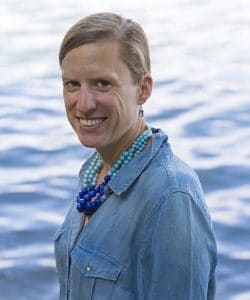
This Winter Quarter the Writing, Rhetoric, and Discourse department is offering a particularly special guest speaker in our Writing & Rhetoric Across Borders series. Dr. Caroline Gottschalk Druschke is joining us from the University of Wisconsin-Madison to share her work in oral history. Her presentation “Living Well with Floods: Reciprocity, Research, and Refusal in Wisconsin’s Hill Country” gives a glimpse into stories she’s collected around dealing with ever-increasing floods and the mutual aid that takes place after disaster strikes. Dr. Gottschalk Druschke is well-versed in ecological and water-based rhetoric as they have been focuses of hers for years. In fact,
Continue reading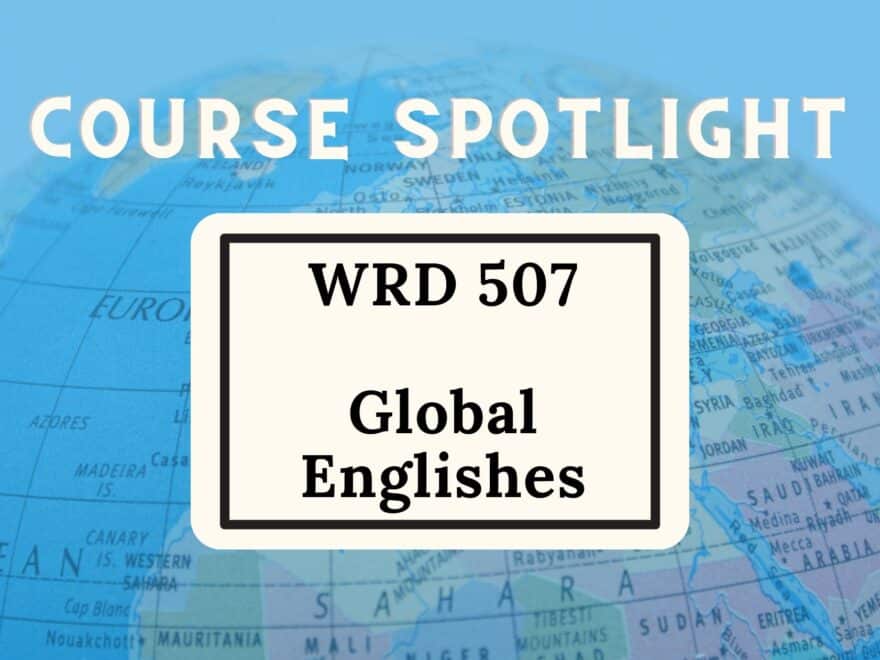
Note: This post was updated in January, 2024. This Spring Quarter, Dr. Jason Schneider is teaching one of his favorite courses—WRD 507 Global Englishes. This course showcases the vast variations in the English language across the world and the forces that have made English both a modern lingua franca and a language expressed in many different ways around the world. For students interested in linguistics, language teaching, and the political histories that shape our communication, this class is an opportunity to engage with English on an entirely new playing field. “In the broadest sense, the course offers a way to
Continue reading